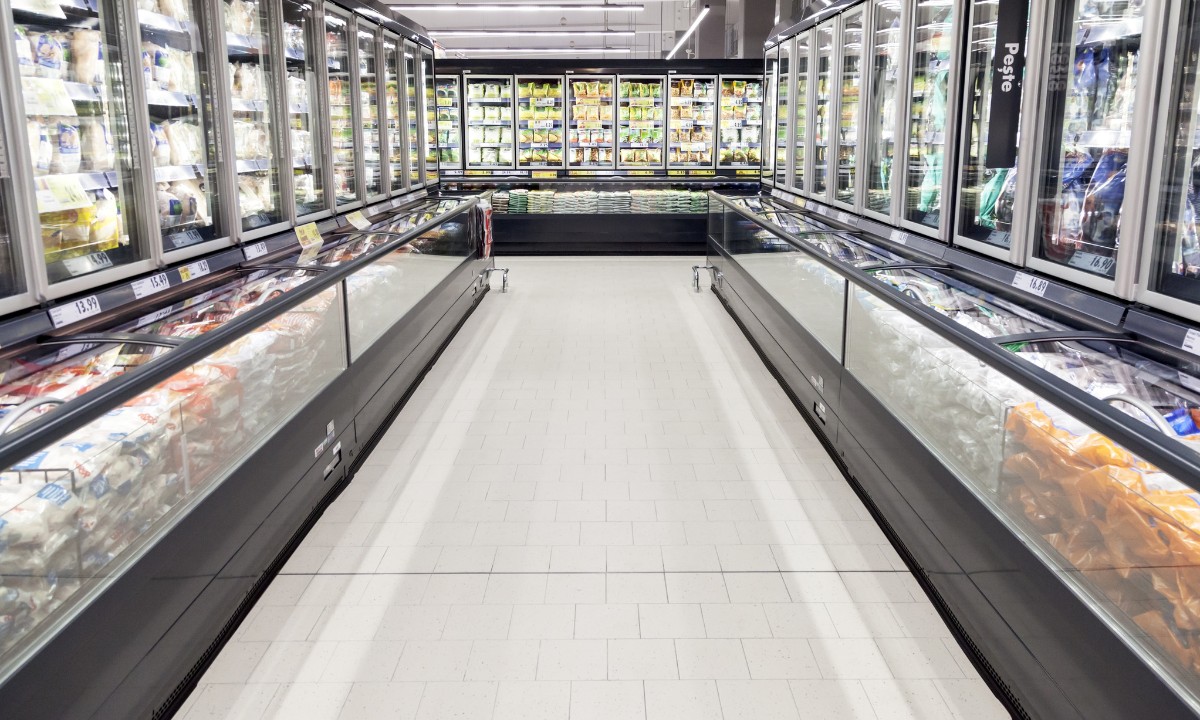Australia considering GWP limits for commercial refrigeration equipment and R404A import ban
July 01, 2024

Australia’s Department of Climate Change, Energy, the Environment and Water (DCCEEW) has opened a public consultation period on policy options to reduce the use of high-GWP refrigerants in commercial refrigeration.
The focus: DCCEEW’s policy proposals are targeted at commercial refrigeration’s continued use of R404A. It said that transport refrigeration will be addressed “at a later stage.”
- According to the DCCEEW, “the consumption of R404A increased from an average of 834 tonnes per annum over the five years to 2020 to 880 tonnes per annum in 2021.”
- Imports of R404A, as a total percentage of Australia’s HCFC and HFC imports, increased from 12.6% in 2016 to 16.3% in 2021, with medium-sized commercial refrigeration units such as condensing units and small racks helping to drive demand.
- According to the IPCC Sixth Assessment Report, published in 2021, R404A has a 100-year GWP of 4,728 and a 20-year GWP of 7,208.
Equipment GWP limits: The DCCEEW is proposing refrigeration equipment GWP limits as a way to indirectly curb the use of R404A.
- Self-contained and plug-in commercial equipment: The DCCEEW is proposing a GWP limit of 150 for new equipment of this type, which in addition to refrigerated cabinets also includes ice makers, beverage coolers and self-contained blast chillers and refrigerated food lockers. It noted that hydrocarbons are the dominant refrigerant in small, self-contained equipment.
- Medium commercial refrigeration: Equipment in this segment, which primarily uses R404A, includes slide-in/drop-in self-contained refrigeration units, chillers and condensing units. The DCCEEW is proposing a GWP limit of 1,500 “for most new equipment and condensing units in this category” and a GWP limit of 2,500, which would decrease eventually to 1,500, for new equipment that cools at or below −20°C (−4°F).
- Large commercial refrigeration: A GWP limit of 150 for new equipment is proposed, with a higher GWP limit of 1,500 for the primary refrigerant used in cascade systems. The DCCEEW roughly defines this equipment type as the refrigeration systems used in large supermarkets.
- Process and industrial refrigeration: The DCCEEW notes that equipment in this category “is understood to largely use refrigerants other than HFCs, primarily ammonia [R717] and CO2 [R744]” and has not crafted a policy option for it.
Import bans, reuse restrictions: Direct measures against R404A proposed by the DCCEEW include a ban on new imports of R404A or a restriction requiring that HFC only be used to service existing equipment.
- Controls on the use of recycled R404A are also being proposed to encourage end users to replace older equipment.
- Exemptions for both the import ban and reuse controls are also proposed, with feedback sought on both equipment that should be eligible for exemption as well as the conditions and circumstances suitable for an exemption.
- The DCCEEW labeled Australia’s current demand for R404A “unsustainable.”
What it means for NatRefs: The 150 GWP limit proposed for self-contained and large commercial refrigeration equipment could further drive the adoption of transcritical CO2 refrigeration and propane (R290) plug-in cabinets in supermarkets. However, the higher GWP limits for medium-sized commercial units and cascade systems keeps the door open for HFO/HFC blends. The issue of PFAS (per- and polyfluoroalkyl substances) was not addressed by the DCCEEW.
- The DCCEEW is not solely responsible for driving the adoption of natural refrigerants in Australia. Australian states are also taking action.
- Queensland recently issued a compliance certification for Johnson Controls’ large-scale R290 chillers and air-to-water heat pumps, enabling them to be sold throughout Australia.
- Japanese manufacturer Itomic’s large-scale CO2 air-to-water heat pump has been approved for government rebates from Victoria and New South Wales for energy-efficient commercial and industrial products.
- Stefan Jensen, Managing Director of commercial and industrial refrigeration systems provider Scantec Refrigeration Technologies, said a colleague who attended a DCCEEW meeting in December 2023 and asked about PFAS was told it would not have an impact on Australian refrigeration policy.
The consultation period: The public consultation period on the proposed policy options is open from June 27 to August 8, and those interested in sharing feedback can do so via survey or in writing by emailing ozonepolicy@dcceew.gov.au. Public information sessions will be held online on Tuesday, July 23 at 11 am AEST and on Thursday, July 25 at 2 m AEST.


